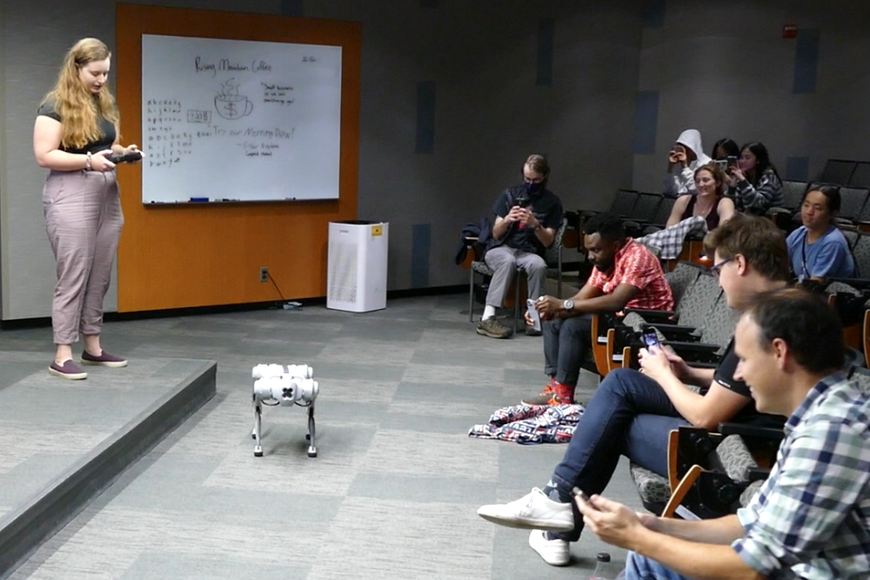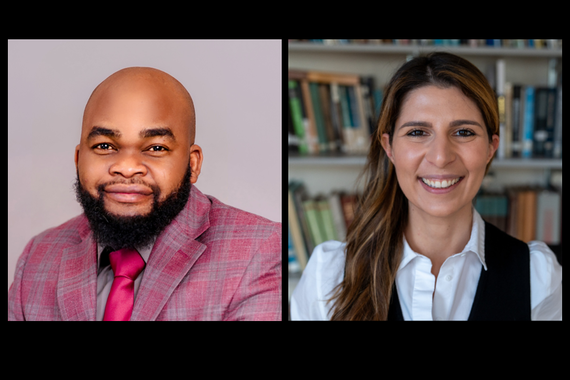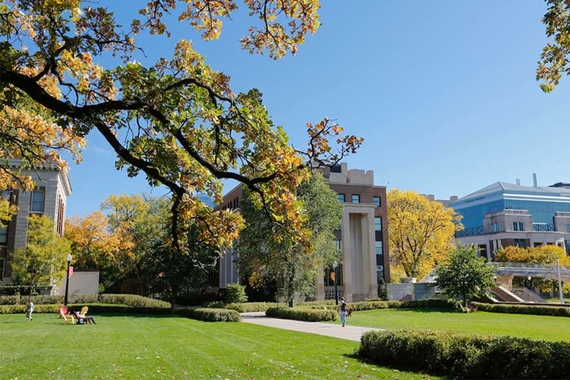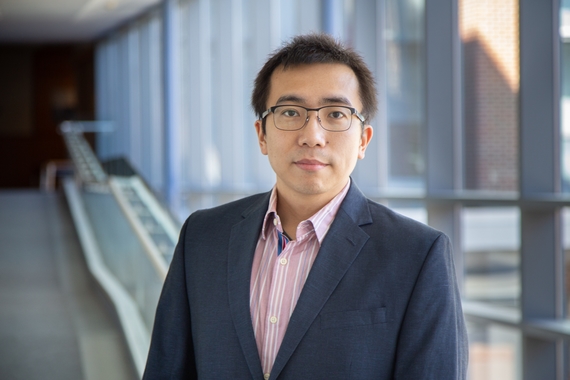Machine Learning Summer Camp Creates Possibilities
When students leave campus for the summer, you might expect the University of Minnesota to be empty. However, those who remain behind know that a second wave of activity is just beginning: summer camps. One summer camp that brings kids to campus is the < RUN>: \ THE\ WORLD Machine Learning Summer Day Camp, sponsored each year by the School of Statistics and the School of Mathematics. This camp, which has run every summer since its inception in 2018, brings together high school juniors and seniors from across the Twin Cities metro to learn about and explore the power of data science, statistics, and machine learning.
Over the course of a single week, campers learn how to apply machine learning algorithms to common information sources – like medical, historic, and ecological records – to build meaningful understanding from data. Campers are empowered to choose their own project topics, ranging from Pokémon classification to poisonous mushroom identification or even Minnesota police stop prediction. They gain practice applying the Python programming language to datasets to identify shapes, trends, and preferences, and investigate questions like, “How does Netflix know what movies you like?”
Though some students have never even seen a line of code before camp begins, by the end of the week they are conducting thorough, data-driven, quantitative investigations to answer real and interesting questions. One 2019 camp attendee reflects on her experience, starting with her motivations for attending: “I didn't even like statistics or data science. I had only signed up because I wanted to learn more about Python. However, that short one-week period left a large impact on my life. I got to meet a wonderful batch of brilliant women and became really inspired to keep working at ML. I continued to study data science once I started college.”
Reaching students that are traditionally underrepresented in STEM fields, such as women and people of color, has become a main focus of the camp. Campers can register for one of two sections: a section for all girls (those identifying as female or non-binary), or a section for all genders. Studies have shown that providing out-of-school time STEM programs, like summer camps, can increase science self-efficacy, especially for girls. (Broder et al. 2023 432-439) These programs provide the space for students, especially girls and racially minoritized students, to take intellectual risks and meet a community of mentors in a setting where they can experience science and try their best without fear of failure. Across both groups, camp organizers strive for at least 50% of the camp instructors to be female identifying, which gives students of all genders, female science mentors and role models. After all, “if you can see it, you can be it.”
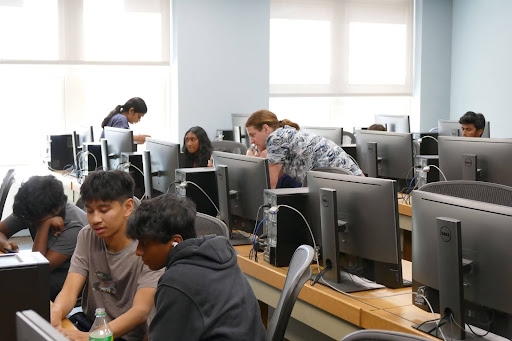
To further the mission of inclusion and make attendance accessible for those from all socioeconomic backgrounds, the camp offers full registration fee waivers and bus passes, and provides breakfast and lunch each day. All these efforts have not been in vain. In 2023, the camp served 52 students, of which, approximately 40% identified as female or non-binary and approximately 25% were from underrepresented racial groups. These numbers are beyond the national averages reported by the U.S. Equal Employment Opportunity Commission special report, where they found women make up 35%, African Americans make up 7%, and Hispanic Americans make up 8% of employees in STEM in the U.S.
Reaching a broader student base isn’t the only thing the < RUN>: \ THE\ WORLD Machine Learning Summer Day Camp is doing to broaden access to tech-based careers. Each day of the camp, students meet local industry professionals and learn how they apply machine learning algorithms to solve problems in the real world. One camper from 2022 reports “My favorite part of the machine learning camp experience was getting to listen to and meet industry speakers from companies like Securian Financial and Spotify talk about the cool things that they're doing with Machine Learning right now.” For this camper, establishing relationships with industry speakers opened doors for his future. He reports, “We've stayed in touch, exchanging advice... Eventually he started a Medical AI startup and offered me a job.”
For students who want more advanced experience with machine learning, the camp offers a second week of opportunity. In the advanced session, students explore deep learning with projects that include training a version of Chat-GPT, creating a bot to play video games, building an algorithm for daily stock trading, and identifying COVID-19 in chest x-rays. This second session of the camp includes more speakers and more math, challenging students to think beyond instructions and find answers to current open problems.
The camp has been generously supported by the Institute for Mathematics and its Applications (IMA), the School of Statistics, the University of Minnesota Data Science Initiative (DSI), Travelers, and the National Science Foundation, among others. However, finances remain one of the camp’s biggest challenges. Those who wish to support this opportunity and provide valuable learning experiences to campers can learn more about how to help.
- Broder, E. Dale, Kirsten J. Fetrow, Shannon M. Murphy, Jennifer L. Hoffman, and Robin M. Tinghitella. "STEM Summer Camp for Girls Positively Affects Self-Efficacy." The American Biology Teacher 85, no. 8 (2023): 432-439.
